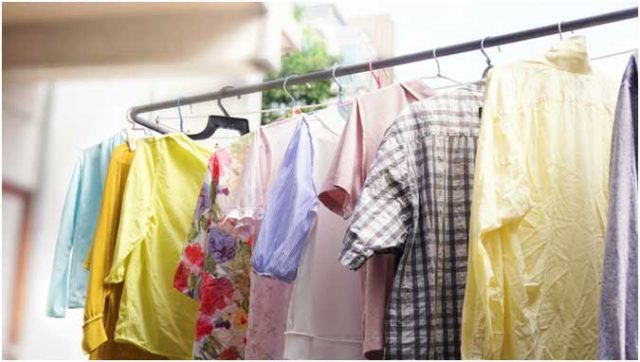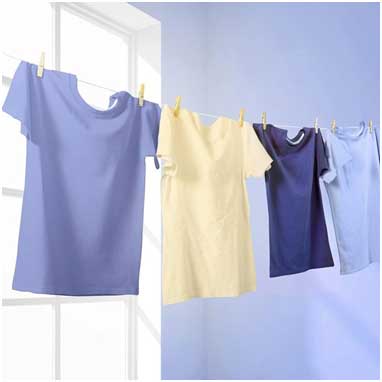By Norman P. Aquino, Special Reports Editor
Jenina P. Ibañez, Charmaine A. Tadalan, Beatrice M. Laforga
and Gillian M. Cortez, Reporters
PRESIDENT Rodrigo R. Duterte on Monday asked lawmakers to pass stimulus measures to revive an economy on the brink of a recession caused by a coronavirus lockdown that is one of the world’s strictest and longest.
Analysts, business leaders and opposition lawmakers said he failed to say how exactly he plans to go about it.
The tough-talking Philippine leader devoted the first hour of his almost two-hour state of the nation address — his penultimate, before he steps down in two years — lauding state response to the pandemic and urging Congress to support his economic recovery plan.
“We must facilitate the country’s economic recovery,” Mr. Duterte said in a speech at the House of Representatives, where about 50 VIP politicians gathered to hear him speak. The rest of his audience was made up of Cabinet secretaries, senators and congressmen, and local government officials who listened in from various Zoom Cloud meetings.
He asked lawmakers to fast-track the second version of the bill giving him special powers in dealing with the pandemic, including realigning government funds.
The first law that has since expired let him realign about P275 billion to state programs against the coronavirus. The second measure seeks to let him allocate another P140 billion for various programs for the health emergency.
Mr. Duterte vowed not to rush the reopening of the economy, saying the good “would be outweighed by the bad it will generate.” “Haste makes waste, The recent surge of infections when you open little windows of resumption of business is proof of that.”
Mr. Duterte also asked Congress to hasten the approval of the bill seeking to immediately lower the corporate income tax to 25% from 30% while giving the government the flexibility to grant both fiscal and nonfiscal incentives.
He also sought the approval of the measure allowing banks to transfer bad loans and assets to asset management companies.
The President promised to continue his administration’s “Build, Build, Build” infrastructure program, noting that these “are an effective tool to help spur high growth, attract investments, create jobs and achieve financial inclusion for all Filipinos.”
After an hour, he segued from his prepared speech and spent almost half an hour threatening to “kill” drug traffickers and asking lawmakers to revive the death penalty for heinous crimes including illegal drugs.
Mr. Duterte, who is down to his last two years in office and barred by law from seeking reelection, is under pressure to revive the economy to keep his political capital and ensure the victory of his chosen candidate in the 2022 presidential elections. At least three presidents before him had either been sued or jailed for corruption.
Mr. Duterte said he pleaded with Chinese President Xi Jinping five days ago to prioritize the Philippines for supply once it finds a vaccine for the coronavirus.
“If they have the vaccine, can they allow us to be one of the first or if it’s needed, if we have to buy it, that we be granted credit so that we can normalize as fast as possible?” he said, reiterating that face-to-face classes won’t happen until a vaccine is found.
The coronavirus has sickened more than 82,000 and killed almost 2,000 people in the Philippines, more than double from end-June and the second-highest number of infections in Southeast Asia even if Mr. Duterte had enforced one of the world’s earliest quarantines.
“Many of the points he emphasized were old talking points — drugs, criminality and corruption,” said Herman Joseph Kraft, an associate professor and chairman of the University of the Philippines’ Political Science department.
“There were a number of potentially inconsistent declarations. He threatened to close down telcos while at the same time emphasizing the need to switch to online modalities in government service and education,” he added.
Mr. Kraft also said the President had failed to detail a national strategy to combat the COVID-19 pandemic. “There was no clear statement about this, just aspirations about increasing testing.”
The government is hard-pressed to come up with a road map for economic recovery as the Philippines faces its worst slump in three decades after the lockdown shut businesses and sapped consumption.
The economy shrank by 0.2% in the three months through March, the first slump after more than two decades of growth, while the unemployment rate hit an all-time high of 17.7% in April. Economic managers expect economic output to shrink by as much as 3.4% this year amid a worsening fiscal outlook.
MORE DETAILS
In his speech, the President also vowed to help micro-, small- and medium-sized enterprises and proposed to institutionalize a government program to send people back to the provinces by refocusing economic and social welfare services to the countryside.
Business groups said they wanted to hear the details of stimulus measures, especially for small businesses.
“We wanted him to mention the proposed Accelerated Recovery and Investments Stimulus for the Economy Act,” Philexport President Sergio R. Ortiz-Luis, Jr. said by telephone after the President’s address, referring to a P1.3-trillion stimulus package that allots a budget for mass testing, wage subsidies and help for small companies.
“That’s a big thing for us and it’s important for the recovery and investment,” he said.
Business groups in their wish lists last week asked for economic stimulus measures and legislation that will open the country to foreign direct investment.
Mr. Ortiz-Luis also said he waited for Mr. Duterte to mention the national ID system and a plan to revamp an inter-agency task force on the coronavirus to include more inputs from economic managers and the business sector.
Chris Nelson, executive director at the British Chamber of Commerce of the Philippines, said he was looking forward to the budgets that would be allotted to specific sectors under the P140-billion fund of the so-called Bayanihan to Recover as One bill.
In one of his ad-libs, Mr. Duterte threatened to shut down telecommunication companies if they fail to improve their service by December.
“If you are not ready to improve, I might just as well close all of you,” he said, threatening to seize the companies in favor of the government.
He also renewed his attacks on ABS-CBN Corp., branding the Lopez family, who owns the media giant, as oligarchs, weeks after congressmen rejected the broadcast network’s plea for a new franchise.
A high-ranking official at dominant carrier PLDT, Inc. declined to comment on the President’s threat.
“We heed the call of the President to improve telco services,” rival Globe Telecom, Inc. said in an e-mailed statement. “Service performance and increased consumer demand for data are the key reasons why we have been investing billions of dollars to upgrade and improve our network,” it added.
Toward the close of his speech, Mr. Duterte reiterated his policy of diplomacy in dealing with the sea dispute with China.
“Unless we are prepared to go to war, I would suggest we treat this with diplomatic endeavors,” he said. “They are in possession of the property. So what can we do? We have to go to war and I cannot afford it.”.
Mr. Duterte’s speech had some good points, but these were drowned out when he attacked opposition Senator Franklin Drilon for defending the Lopezes and talking about his war on drugs, Maria Ela L. Atienza, a political science professor at UP, said in an e-mailed reply to questions.
“It would have been better if he stuck with the prepared speech and laid out a clearer road map to improve the country’s response to the pandemic,” she added.
Mr. Duterte’s address left a “big hole” in his administration’s overall response to the pandemic, Albay Rep. Edcel C. Lagman said by telephone.
“People were expecting the President to announce a road map of his administration in responding to the COVID-19 pandemic,” he said, adding that the budget under the Bayanihan 2 bill was not enough to address the crisis.
Opposition Senator Francis N. Pangilinan questioned the President’s push to revive the death penalty. “COVID, hunger and joblessness of millions are serious problems, yet the death penalty is what’s being pushed,” he said in a social media post.
Mr. Duterte locked down the main island of Luzon in mid-March, suspending work, classes and public transportation to contain the pandemic. People should stay home except to buy food and other basic goods, he said.
He extended the lockdown for the island twice and thrice for the capital region. The lockdown in Metro Manila has since been eased, with more businesses allowed to reopen with a skeletal workforce. Mass gatherings remained banned.
Hastings Holdings, Inc., a unit of PLDT Beneficial Trust Fund subsidiary MediaQuest Holdings, Inc., has a majority stake in BusinessWorld through the Philippine Star Group, which it controls.











